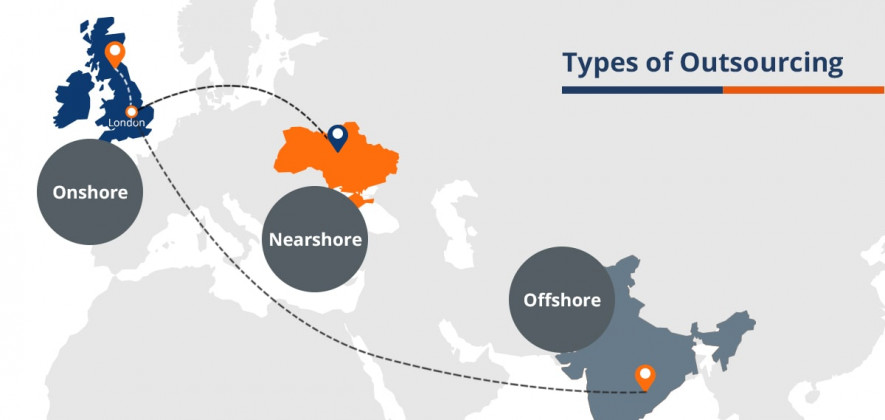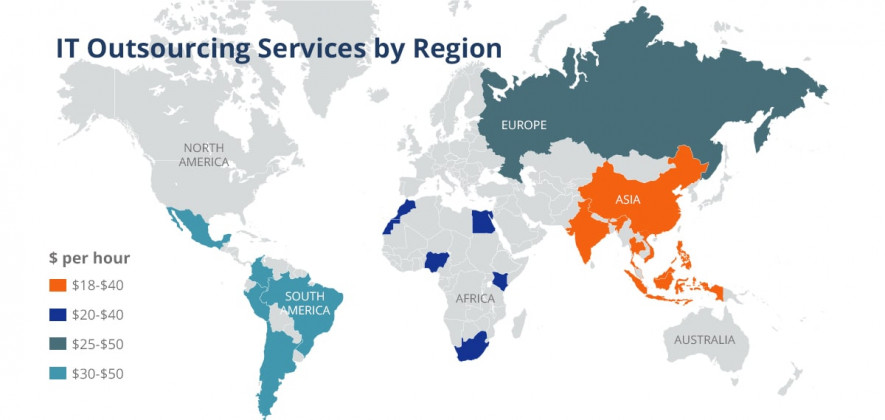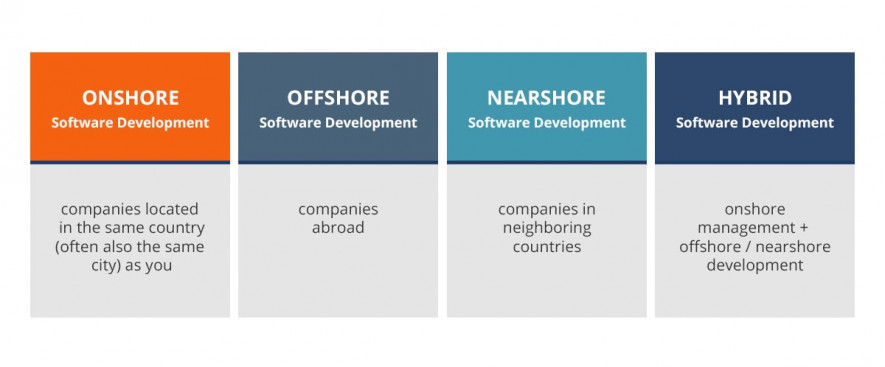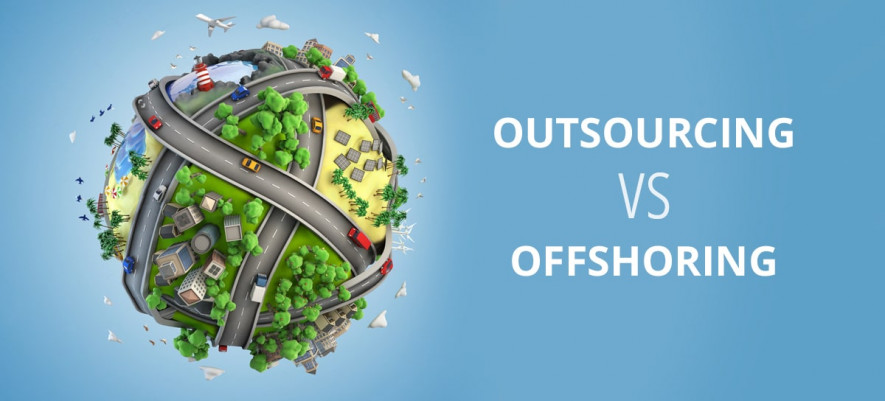- QATestLab Blog >
- QA for Business >
- Industries Insights >
- Offshoring and Outsourcing Difference
Note: the article was updated in October 2018.
This year offshoring and outsourcing gained victory in the rating of the most often used business terms. And not only used but also misused. These words are very often misunderstood by the surprisingly large majority of people. Offshoring, for example, is interpreted as something evil which enriches business and steals money from consumers. There are distinct characteristics of these terms and differences between them.
Outsourcing
Outsourcing takes place when a company delegates some internal operations to external organizations. In other words, this company buys services or goods from a third party. Outsourcing doesn’t necessarily refer to a different country but can occur even in the same city. There are three types of outsourcing: offshore, onshore, and nearshore.
Onshore suggests that the company that provides services is in the same country as well as the client.
Nearshore means that the outsourced company is in the nearby country of the same region. The difference in time usually doesn’t exceed two hours.
Offshore presupposes outsourcing in another country or a different continent, i.e, far from the client.
Main reasons to outsource
Cost
The same goods or services may be acquired for a much lower price and present a high level of quality. It is the main reason that makes outsourcing so popular through last decades. Let’s have a look at the IT outsourcing services in different regions.
Specialization
Some item of goods or services have a very narrow field of specialization and should be provided by the professionals. If a company produces cars, for example, they do not have to specialize in audio system making. It is possible to outsource and get a product of high quality.
Flexibility
It means that outsourcing gives the possibility to pay exactly for the product/service. You have the benefit to choose if to hire the whole department with all the ensuing expenses, or just to pay for the working hours on your project.
Offshoring
Offshoring is, first of all, a geographical issue. It deals with getting goods/services from a different country and this is what most people mean when they speak about outsourcing. Not all offshoring businesses involve outsourcing. For example, a company may open an affiliate in another country to produce details for smartphones. They offshore, because this branch office is abroad, but they do not outsource as everything is done within the same company.
Main reasons to offshore
Cost
Some countries have more expensive goods and services due to the high-priced production and distribution. On the contrary, there are countries that offer inexpensive labor resulting from the economic factors. Savings based on this principle can be impressive.
Tax and Tariffs
Some countries have lower tax or tariffs and attract abroad companies to offshore. Such policies allow to import products cheaper and to get notable profit.
Control
One of the reasons why a company may prefer offshoring to outsourcing is that they want to keep control over goods/services production. Some of them demand strict delivery timelines and manufacturers prefer to take the full responsibility and control over it.
Outsourcing vs Offshoring
A lot of factors should be considered before choosing whether to outsource or to offshore. Business and market specialists have to analyze possible benefits or downsides for a definite company.
Most analysts consider that a great way to save money is to combine outsourcing and offshoring. It means, that not only some work will be delegated to another company, but this work will also be performed in another country. That is one of the best practices that most of the developed countries have been implementing for decades already.
Final Word
The most important thing when deciding whether to outsource, offshore or to combine is to understand the difference between these two ideas. Qualified specialists analyze the situation for each company as there isn’t one universal decision. Modern practices show that outsourcing and offshoring can help to save significant costs in most cases, but it’s better to look before you leap.








No Comments Yet!
You can be the one to start a conversation.